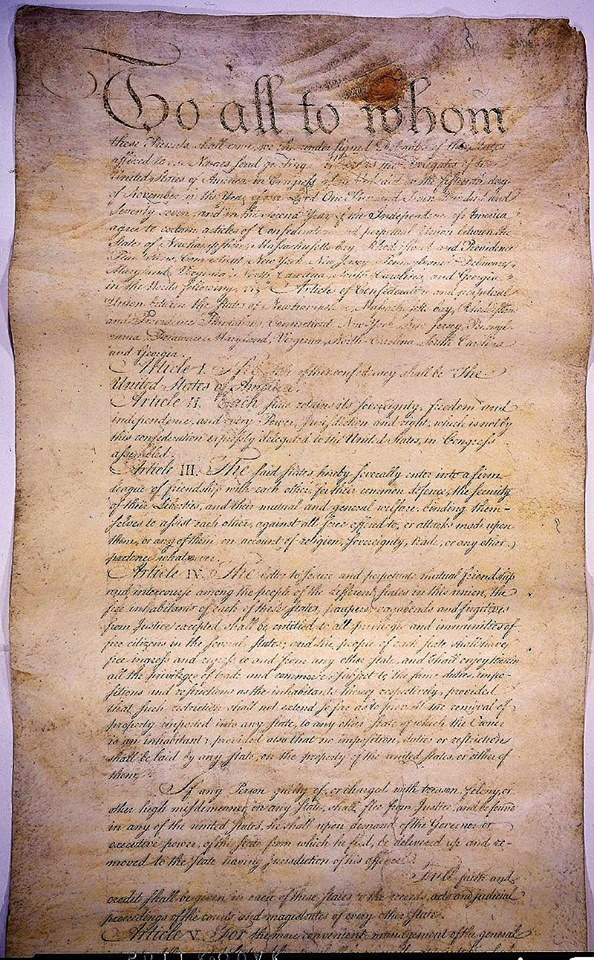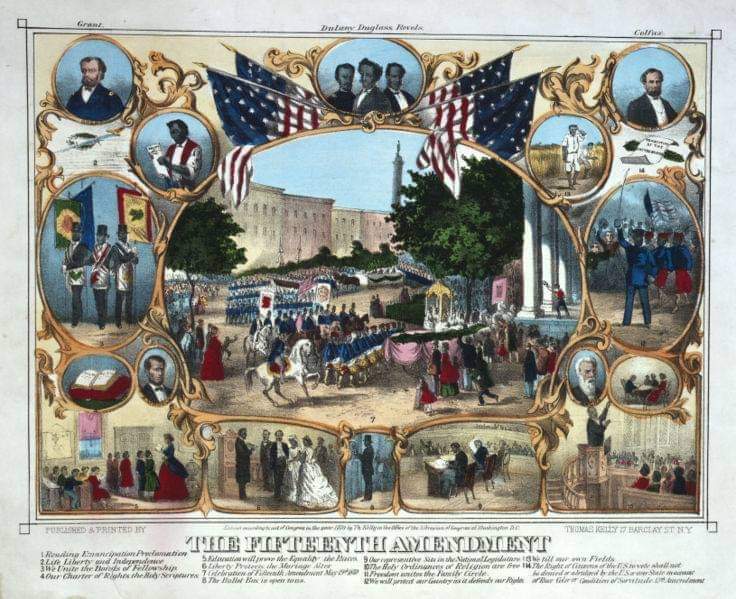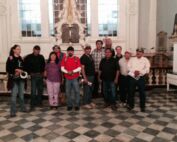#OTD, March 1, 1781, the Continental Congress adopted America’s first Constitution – The Articles of Confederation. Our experiences under these articles were necessary, inspiring the creation of a “more perfect union” under our current Constitution. Here’s the story.
Americans had enough of King George’s tyranny, so they declared their independence. However, tearing down an oppressive system is one thing but putting something better in its place is another. The Continental Congress gave the task to John Dickinson, and Congress edited his draft. Congress thought Dickinson’s product gave too much power to a central government, which they were in no mood to do considering their recent experience with King George and Parliament.
These “Articles of Confederation” were adopted by the Continental Congress on this day, March 1, 1781. It created a union like a league of nations, an agreement between sovereign nation-states. Statesmen immediately recognized the weaknesses of this form of government. Benjamin Rush stated,
“The confederation, together with most of our state constitutions, were formed under very unfavourable circumstances. We had just emerged from a corrupted monarchy. Although we understood perfectly the principles of liberty, yet most of us were ignorant of the forms and combinations of power in republics. Add to this, the British army was in the heart of our country, spreading desolation wherever it went: our resentments, of course, were awakened. We detested the British name; and unfortunately refused to copy some things in the administration of justice and power, in the British government, which have made it the admiration and envy of the world. In our opposition to monarchy, we forgot that the temple of tyranny has two doors. We bolted one of them by proper restraints; but we left the other open, by neglecting to guard against the effects of our own ignorance and licentiousness.”
In other words, the people’s anger over British tyranny clouded their judgment, and, as a result, they went too far in the other direction. They tore down a system indiscriminately, the good along with the bad. The period between 1783 and 1787, when the Articles of Confederation were in force, is known as “The Critical Period” in American History. America threw off one extreme – tyranny, and now they were on the verge of falling prey to the opposite extreme – anarchy.
The Articles were deficient for the following reasons.
First, no matter how large or small a state was, each state had one vote, and it required a unanimous vote to get anything done. So, a small state like Delaware had equal weight with larger states. One small state could strike down a law even if all the other states agreed.
Second, if a law was by some miracle passed, they couldn’t enforce it. There was no President to execute the laws.
Third, Congress merely advised the states, and it couldn’t raise taxes. It could make requests but couldn’t enforce payment, which almost cost us the war. Washington paid many army expenses out of his pocket, and Congress, with no other alternatives, borrowed money from France and Holland.
Fourth, Congress had no power to regulate trade with foreign nations or between the states. Individual states were making treaties with foreign powers. Plus, states were levying import duties on each other, leading to commercial warfare among them.
Many patriots, including George Washington, called this the worst time in our history! Daniel Webster said that the union under the Articles of Confederation was “merely a rope of sand.”
The men who approved the Articles were good and wise people, but they had a difficult task. Federalist #2 describes it this way:
“A strong sense of the value and blessings of union induced the people, at a very early period, to institute a federal government to preserve and perpetuate it. They formed it almost as soon as they had a political existence; nay, at a time when their habitations were in flames, when many of their citizens were bleeding, and when the progress of hostility and desolation left little room for those calm and mature inquiries and reflections which must ever precede the formation of a wise and well-balanced government for a free people. It is not to be wondered at, that a government instituted in times so inauspicious, should on experiment be found greatly deficient and inadequate to the purpose it was intended to answer.”
The creators of the Articles did the best they could under the circumstances. This experience, however, proved necessary, for they called for a Constitutional Convention, which created a Constitution that would last through the ages.
Now you know the rest of the story!
—
Daniel Sheridan
224-216-8349
“When I have a little money, I buy books; and if I have any left, I buy food and clothes.” ― Desiderius Erasmus Roterodamus










